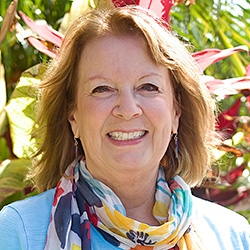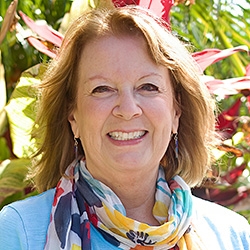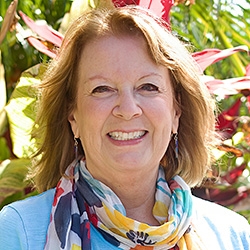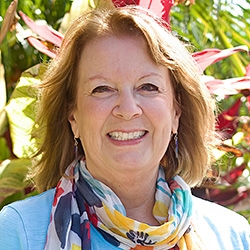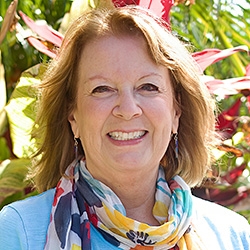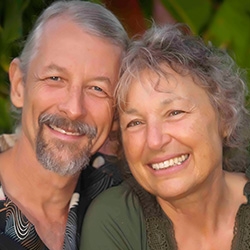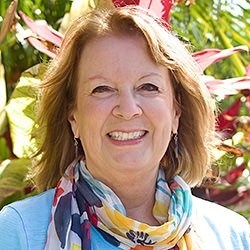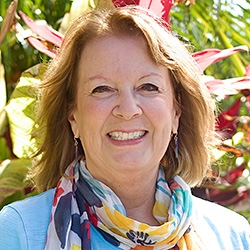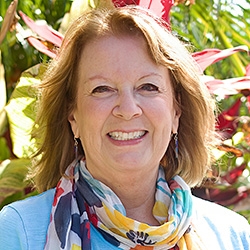
Search Results: abundance
-
Trainer Tip: Let's start an abundance movement! We get great joy from contributing to others lives and allowing them to contribute to ours, let's not let fear get in the way.
-
Instead of allocating resources based on needs, we cling to having more money or privilege than others because its close enough substitute for our deeper longing. We may cling to narratives that seem to legitimize this inequality as something we deserved -- such as earning it; having more talent or ability; or needing more for company growth. This soothes our discomfort of having more than others. But these narratives still block us from genuinely getting in touch with the needs of life.
-
-
What would the world be like if there was flow between all of us based on "mutual giving from the heart"? Using examples, this article offers models for us to follow that could inspire us to treat our NVC practice as one of compassionate giving and receiving.
-
The more we can support an interdependent flow of resources and energy in society and the economy, the greater we can increase both natural abundance and the chances of averting extinction. Accumulation is a strategy born of mistrust. It’s an attempt to control the flow of life to guarantee that we will have enough for the future. Accumulation and exchange has blocked this interdependent flow. We can transform this blockage by uncoupling giving from receiving, and shedding excess as much as we can, so that energy and resources can travel further to those in need.
-
Trainer Tip: In a Compassionate Communication process, we believe there are enough resources in the Universe to meet all of our needs. Most people are stumped because they can only see one strategy for meeting a need. Identify one need that you would like to experience more of and make a list of at least five strategies for meeting it today.
-
The word "privilege" signifies the benefit to the person having it, and the relationship between that person’s benefit and others' lack of benefit. When privileged, there are incentives to not see this interdependent link. For instance, it's easier for the wealthy to think of the poverty of many and the wealth of some are unrelated. If the wealthy want to keep wealth they would need to continue with approaches rooted in this separation.
-
With abundant evidence that most people have unconscious biases against people --even when that bias runs counter to their own values-- there's a strong chance you recreate this disconnect with people far more often than you recognize. So even with a high degree of NVC skills you may behave in a way that seems "NVC" but also reproduces the painful patterns that marginalized people all-too-often experience. Read on for ways to transform pitfalls of NVC into more reliable connection.
-
Trainer tip: NVC consciousness recognizes interdependence. In this process each person is autonomous; everyone's needs matter; people have choice and responsibility for their actions; there's abundance, and a valuing of coming together. The dependence / independence paradigm assumes we either need someone else to be whole -- or we don’t need others at all. Commit to living autonomously. Notice where you struggle with this.
-
Trainer Tip: When considering your "deal breakers" consider what you want from a relationship rather than how it will look. For instance, maybe my need for abundance can be met by someone who is independently wealthy, so he doesn’t have to “have a good job”. When you shift your focus from strategies to needs, you may be pleasantly surprised what the universe brings. Read on for more.
-
Listen to this audio to learn the value of focusing on needs in an NVC model, either for the first time or as a refresher course. Living from a needs-consciousness creates abundance, clarity and choice. Using three examples from participants, Mary guides the group towards identifying and then connecting with the needs of both parties involved in each situation. It becomes clear very quickly that people choose different ways to support their needs; and many times they have the same needs in a given situation. When we understand this, we are able to create peace in our relationships and negotiations.
“Everything someone does or says is an attempt to meet a need,” says CNVC Certified Trainer Mary Mackenzie. This simple statement is a foundational understanding in Nonviolent Communication; once you gain skills at living in a “needs-consciousness” you will literally change your life and your perception of the world, and improve all of your relationships.
-
Jim and Jori Manske went from poverty to financial independence in 8 years, and they’re making the process they used available to you! Please join them in this inspiring 8-session program to transform your relationship with money, scarcity and abundance.
-
I greatly enjoyed my New Year’s Peace Meditation yesterday as it brings together NVC enthusiasts from across the world. It is one of my favorite traditions for welcoming the New Year!
-
How we treat ourselves when we fall short of our own ideals, desires and hopes can profoundly affect the quality of our lives. Learn how to identify your triggers and reactions, to mourn falling short, and to practice self-connection and self-empathy.
-
Trainer Tip: We have a better chance of getting our needs met if we prioritize connecting with one another's needs more than being right. This way we can reduce the chances of conflict arising. We also increase the possibility we can find ways everyone’s needs can be met.
-
We can shift from being absorbed and identified with our inner chatter and feelings to being the space of awareness of these things. Observe your breath. Then observe your mind generating thoughts. Next, feel sensations of your body, particularly the difficult ones. Now, connect with the underlying energy of needs. Ask your unconscious mind for universal needs words related to what you now notice, think and feel.
-
No one on their deathbed wished they worked more. Working is unlikely to bring a meaningful life. And yet greeting friends with survivalist expressions, such as, "I'm dead-tired", can feel like affirming our own worth. Taking time off can bring inner spaciousness, ease, rest and consequently time to meet life, to really meet it. Which brings more clarity into the question of what we would like to celebrate on our deathbed.
-
Dear friends,
I greatly enjoyed my annual New Year’s Peace Meditation yesterday. It always brings together NVC enthusiasts from across the world and is one of my favorite traditions for welcoming the New Year!
How was 2024 for you? For me, it was a bumpy ride. There were moments of joy spending time with our 3-year-old grandson, mine and Kim’s first international trip together (a bonafide vacation that was void of work), and precious time with family and friends. There was also heartbreak...
-
In this potent audio, expert trainer Miki Kashtan demonstrates the eye-opening experience of translating judgments into needs. She works with a mother who is stuck in a loop of feeling judged by family members and judging them back.
-
Trainer Tip: Mary expands on one of the basic principles of Nonviolent Communication: valuing everyone’s needs equally.

